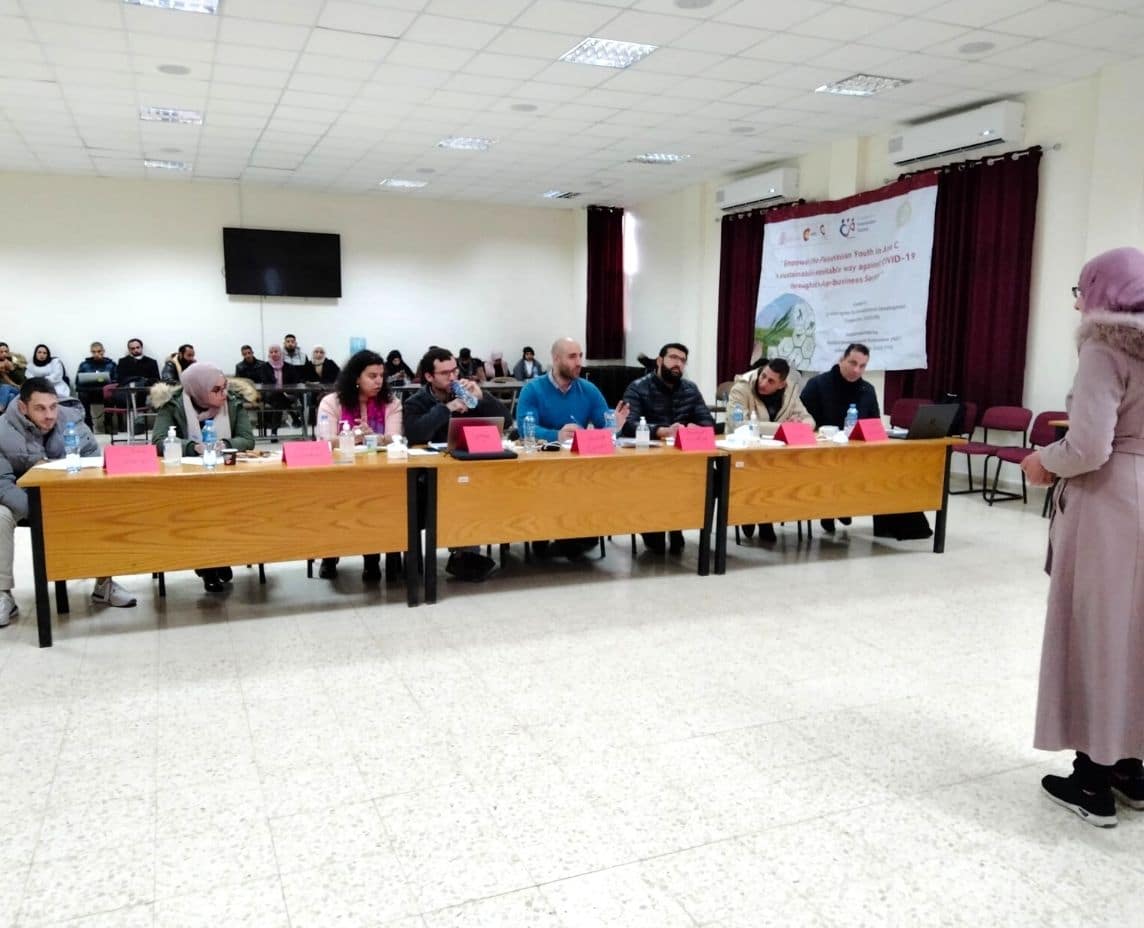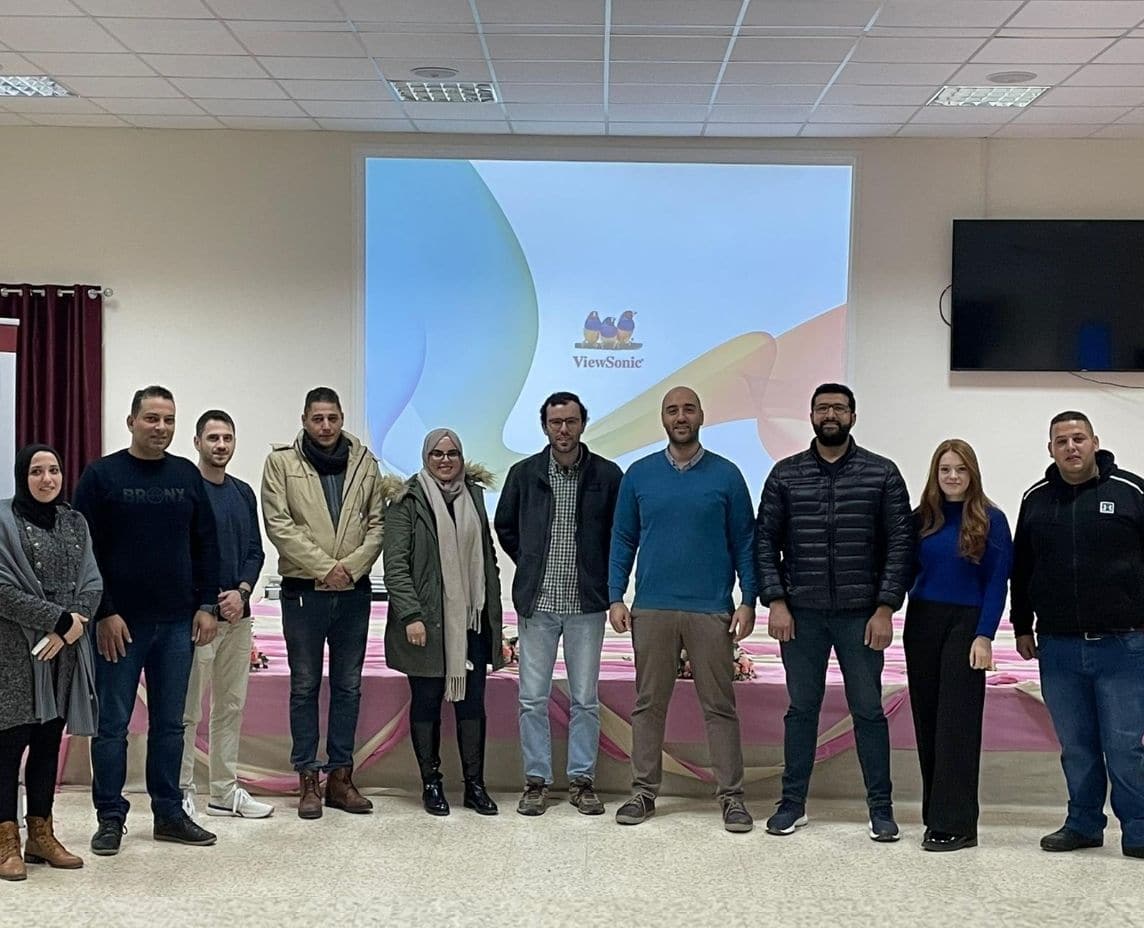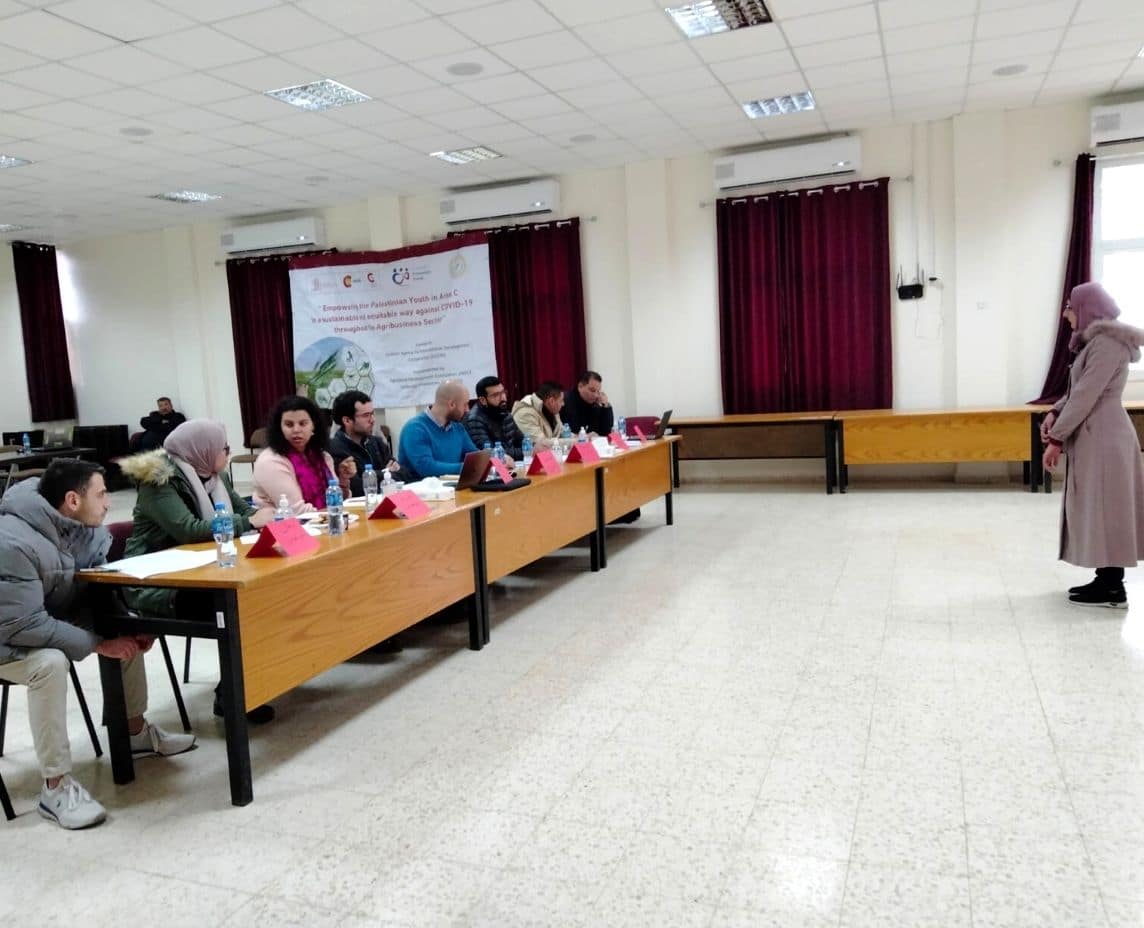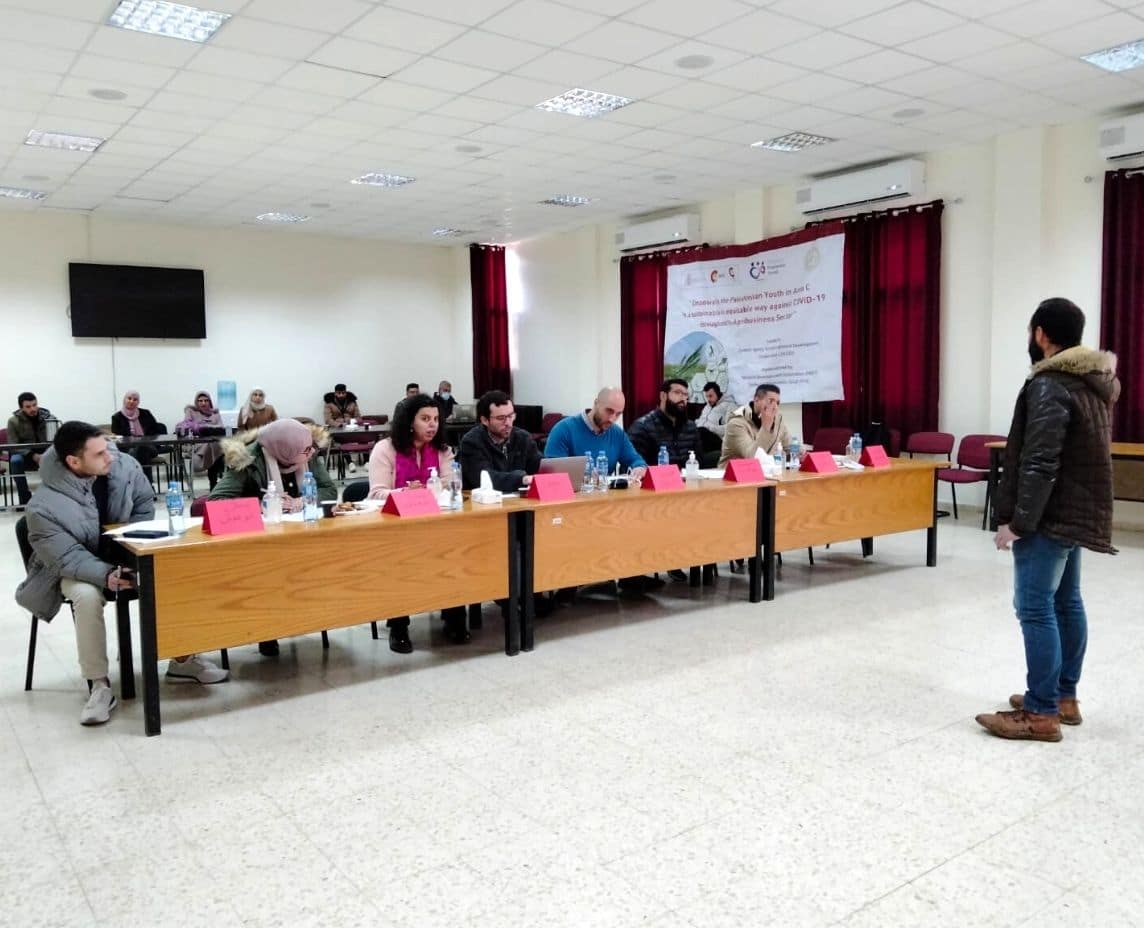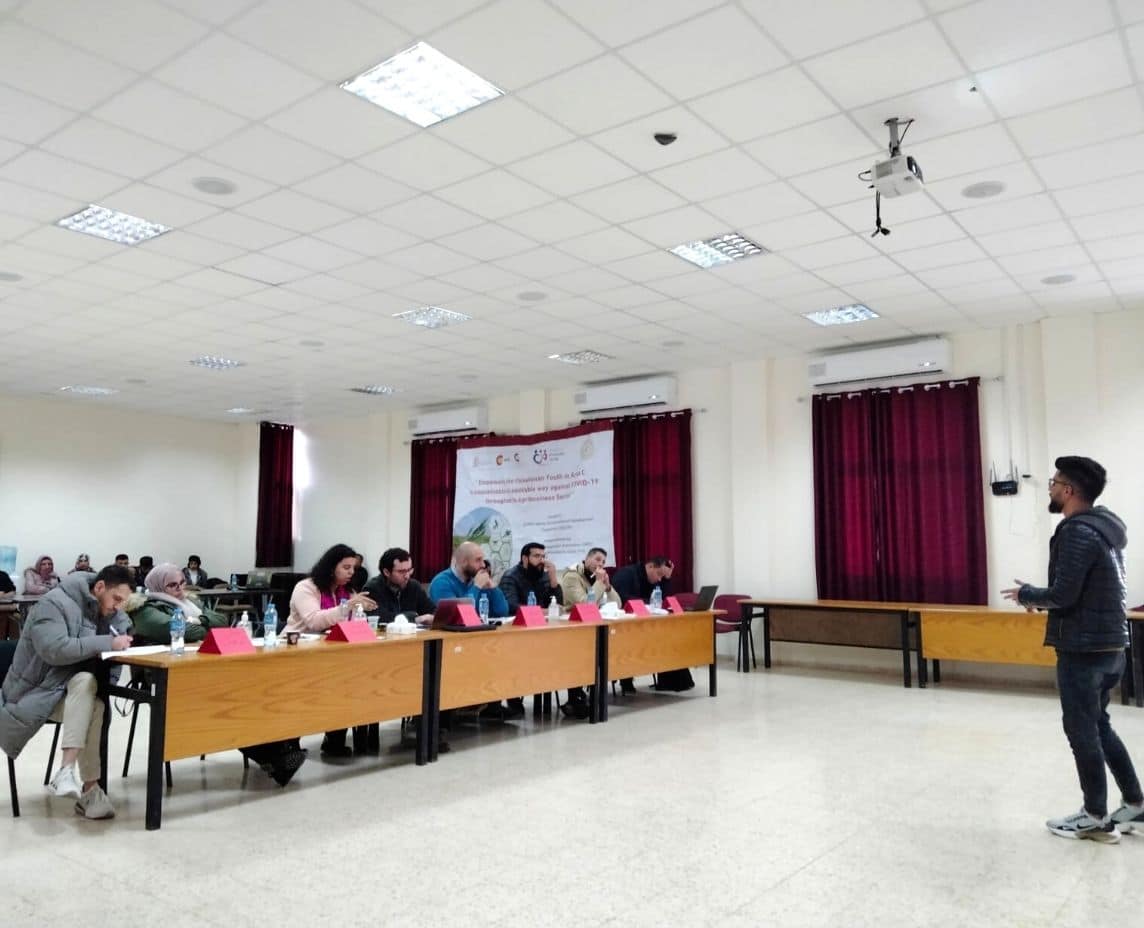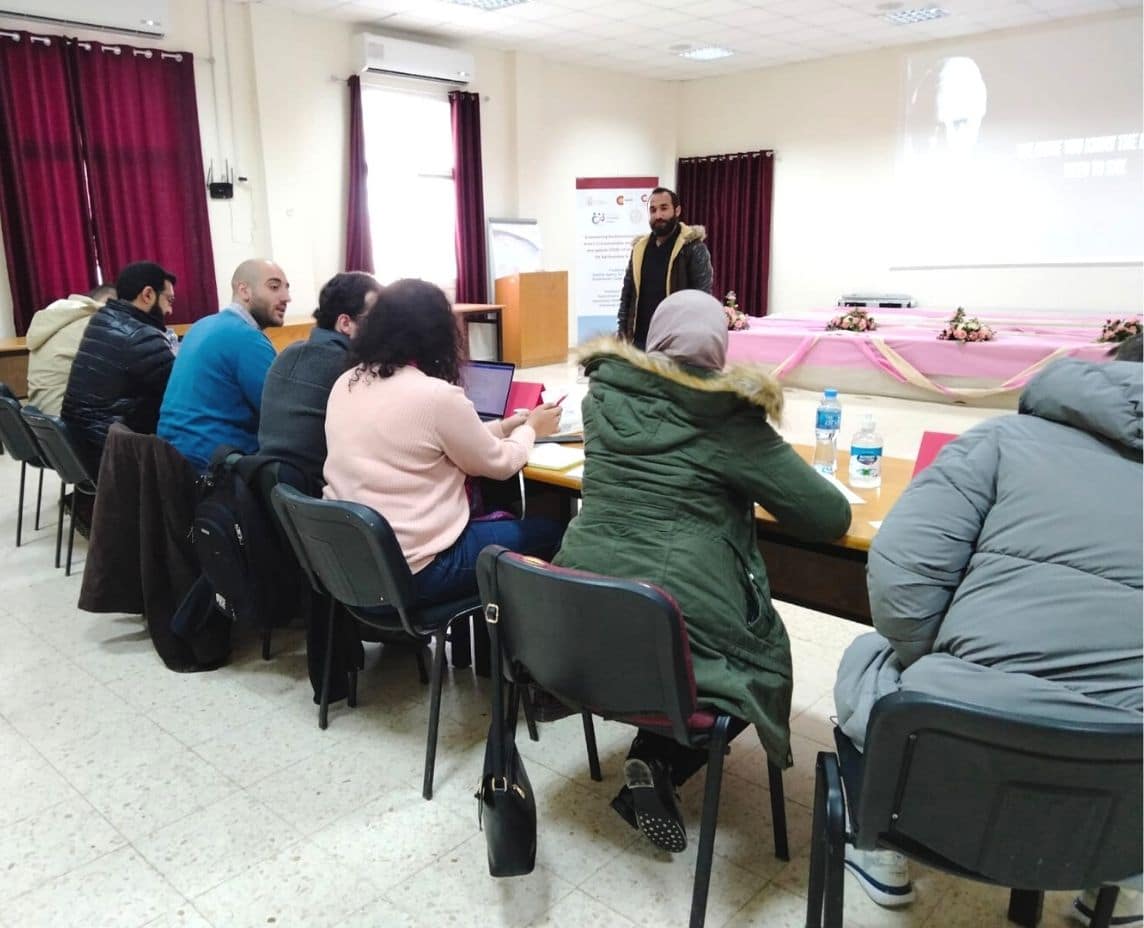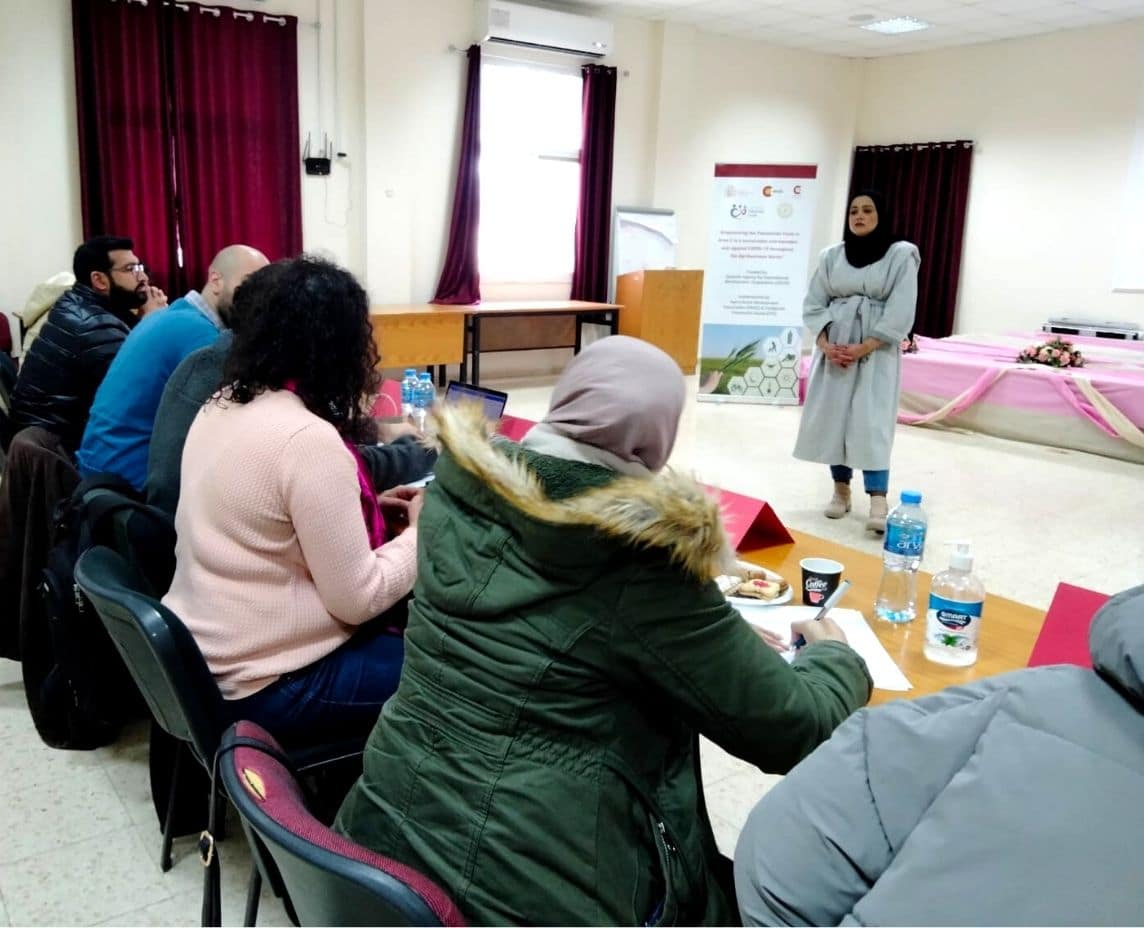On Wednesday, January 19, the final presentation of 30 agribusiness initiatives led by Palestinian entrepreneurs took place in Zababdeh. This presentation was the culmination of months of work and training during the ‘incubation’ phase in which these young people had the opportunity to increase their technical knowledge of irrigation systems, environmental and atmospheric characteristics of the growing areas, good practices in cattle raising, as well as business management, accounting, and soft skills.
The presentation was carried out in front of a panel of experts, who evaluated the projects according to their viability and environmental sustainability, the availability of resources, the expected profitability or the market analysis carried out by the participants. Of the initiatives developed, 15 will be selected to advance to the next ‘acceleration’ phase in which they will receive funding to launch their business idea.
This event took place within the framework of the youth empowerment in Area C of the West Bank project, which Social Promotion implements together with its local partner Palestinian Agricultural Relief Committees (PARC) and with the support of the Spanish Agency for International Development Cooperation (AECID), and one of its objectives is to promote business initiatives in the agricultural sector in Palestine.
Many of the projects presented showed great signs of creativity and innovation.
Kifah Bani, a young woman from the town of Tubas, explained in front of the panel the scarcity of tropical fruits in the Palestinian market. After speaking with different points of sale and identifying an unmet need, this entrepreneur decided to start cultivating 70 pitaya units on her land. After obtaining excellent results, Kifah developed her business proposal to start cultivating 2 dunums and marketing the fruit in the markets of her governorate.
Ahmed Samoudi, a veterinarian by training, is looking for ways to better serve local farmers, for which he has devised a mobile nursing project to assist a larger number of farms and livestock with mobility difficulties.
Asad Abutameh, from the Jenin Governorate, presented an online commerce project to the panel: with the help of his wife, Asad seeks to connect small local producers specializing in traditional items such as labneh, zataar, olives or baba ganush, with the final consumer through a website and social networks and give greater visibility to local gastronomic products.
Throughout the event, the participants expressed their enthusiasm and gratitude for the possibility of developing a business project as a result of their months of work and effort. Many of these young people have been affected by the pandemic, so the emphasis in most projects has been on long-term sustainability and strengthening the local economy.





